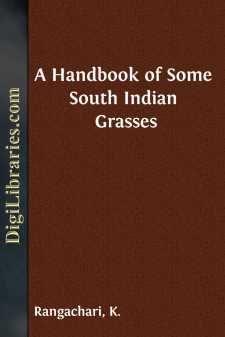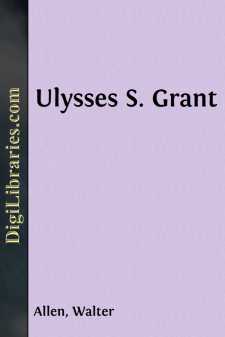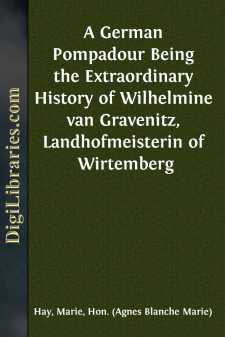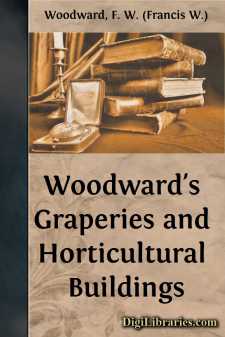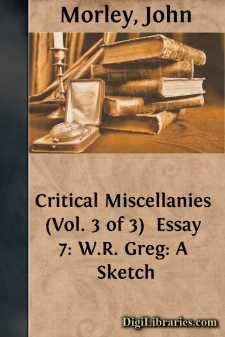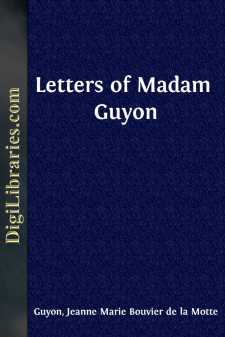Non-Classifiable
- Non-Classifiable 1768
Non-Classifiable Books
Sort by:
by:
K. Rangachari
CHAPTER I.INTRODUCTION. Grasses occupy wide tracts of land and they are evenly distributed in all parts of the world. They occur in every soil, in all kinds of situations and under all climatic conditions. In certain places grasses form a leading feature of the flora. As grasses do not like shade, they are not usually abundant within the forests either as regards the number of individuals, or of...
more...
by:
Walter Allen
CHAPTER I OUR NATIONAL MILITARY HERO Since the end of the civil war in the United States, whoever has occasion to name the three most distinguished representatives of our national greatness is apt to name Washington, Lincoln, and Grant. General Grant is now our national military hero. Of Washington it has often been said that he was "first in war, first in peace, and first in the hearts of his...
more...
PREFACE 'The Past that is not overpast, But present here.' In a dusty, time-soiled packet of legal papers which had lain untouched for nigh upon two hundred years, the extraordinary history of Wilhelmine von Grävenitz is set forth in all the colourless reticence of official documents. And yet something of the thrill of the superstitious fear, and the virtuous disapproval of the lawyers who...
more...
by:
George Berkeley
Part I Query 1. Whether there ever was, is, or will be, an industrious nation poor, or an idle rich? 2. Qu. Whether a people can be called poor, where the common sort are well fed, clothed, and lodged? 3. Qu. Whether the drift and aim of every wise State should not be, to encourage industry in its members? And whether those who employ neither heads nor hands for the common benefit deserve not to be...
more...
by:
Grace Greenwood
MABEL HOWARD AND HER PET. After all, I think I had more real delight in the noble public parks and gardens of London than in palaces and cathedrals They were all wonders and novelties to me—for, to our misfortune and discredit,—we have nothing of the kind in our country. To see the poor little public squares in our towns and cities, where a few stunted trees seem huddled together, as though...
more...
by:
James Milne
I PERSONAL AND PARTICULAR 'Perhaps there is something in old age that likes to have a young mind clinging to it.' Sir George Grey was speaking of the famous people he had known in his youth long, long before. He struck an inner note of nature which is surely equally valid the other way? Whenever I think of the remark, I am inclined to discover one reason why I came to know Sir George so well....
more...
INTRODUCTION. It is less than twenty-five years since the first cold Grapery was erected on the Hudson. Since the success of the culture of the delicious varieties of the exotic Grape has been demonstrated, the number of graperies has annually increased, and during the last ten years in a very rapid ratio, until they have become recognized as possible and desirable, among those even whose circumstances...
more...
by:
John Morley
W. R. GREG: A SKETCH. It is perhaps a little hard to undertake to write about the personality of a thinker whose ideas one does not share, and whose reading of the events and tendencies of our time was in most respects directly opposite to one's own. But literature is neutral ground. Character is more than opinion. Here we may forget the loud cries and sounding strokes, the watchwords and the...
more...
PREFACE. Madam Guyon's correspondence was very extensive, occupying five printed volumes. Her style of writing is somewhat diffuse. In giving religious advice to many persons, there would necessarily be frequent repetitions. It has, therefore, occurred to the writer, that a selection and re-arrangement of thoughts, such as is found in this little volume, would be more acceptable and useful, than a...
more...
by:
Walter Besant
HAMPSTEAD The name of this borough is clearly derived from "ham," or "hame," a home; and "steede," a place, and has consequently the same meaning as homestead. Park, in a note in his book on Hampstead, says that the "p" is a modern interpolation, scarcely found before the seventeenth century, and not in general use until the eighteenth. HISTORY Lysons says that the Manor...
more...


